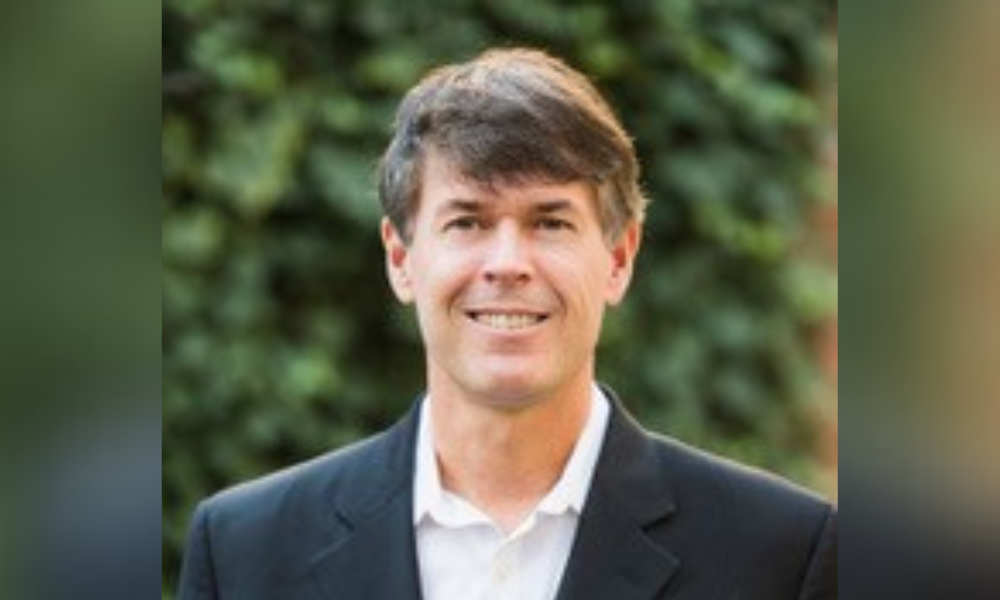Financial crises 'sparked the desire to do things differently'

Mike Holden, who has been in the wealth management business for 32 years, found that some of the adjustments he made after the 2008 financial crisis helped his clients better weather the recent pandemic and market stress. Now, he’s making more adjustments to protect them again going forward.
“Options allow us to hold on to positions that we think are good over time. So, we have option collars on a bunch of our stocks – Microsoft, Apple, Amazon,” Holden, who was recently named one of WP’s Top 50 Advisors, told Wealth Professional. “I’m bullish about them over time. I don’t know what’s going to happen over the next six months, but I don’t want to sell them. So, I can protect them and that allows us to keep going.”
Holden, a portfolio manager with the Vancouver-based Elevator Wealth Management with QWealth Partners, heads a team of nine that oversees $255 million of assets under management from 500 households. It’s a client base that’s built up over the years rather than fitting a certain profile.
“That’s a pretty good size book, so I’m not that concerned about growth,” he said. “I’m just trying to figure out how to reduce the risk and get people where they’re trying to go. We’re a lot more inward focused. We don’t really market. We don’t advertise. If someone comes along or is referred, we’d probably meet with the clients and take them on, but we don’t even ask for referrals.”
When the TSX and S&P 500 dropped about 35% at the beginning of the pandemic, Holden noted that, “year to date, our equity pools were down about 10%. So, we didn’t have the volatility that the markets threw at us in that period.”
He credited that to several factors, including changes the team made after the 2008 financial crisis. First, he noted that the firms it used for research were very bearish, but then the governments also pumped in far more liquidity than anyone expected.
“So, we moved a bunch of cash. We just looked at positions that we thought we wanted to move to the sidelines and we had research that supported it,” he said. “We don’t do that very often as we’re generally optimistic. So, the process we were using back then would suggest moving to cash. Since then, our business has changed a fair bit in how we go about things, and we’re using options more and more rather than trying to identify when to be in or out of the markets. We’re just trying to protect the portfolios and give people decent returns over the long-run and protect what we can. We can have it both ways by having the options in place.”
Holden noted that his team started moving in that direction 15 years ago, just after 2008, which “sparked the desire to do things differently.” At that time, like many advisors, it was in mutual funds or ETFs, but it decided that being discretionary portfolio managers would better aid them in helping their clients more quickly, so made that switch a decade ago.
Five years ago, Holden’s team also moved from iA, which had about 5,000 advisors coast to coast, to the smaller QWealth, which has about 10 teams. QWealth also provided his team with the ability to create client pools, which made trading easier, as well as helping to set up the options.
“If the first 15% of the downside is protected and the markets get hit, we’re not going to lose anything on that stock,” he said. ”Since 2020, we’ve tried to take the guesswork out as to what’s coming and try to put some hedges in place.”
Since 2020, his team has also created a new low volatility pool to generate about 6% a year.
Now, looking at whether there could yet be a recession that may necessitate more changes, Holden said he thinks the worst stretch is behind us.
“We probably went through the worst stretch in the markets last year,” said Holden. “By the time you’re in it (the recession), the markets are looking forward to the rebound. Am I 100% convinced? No. that’s why we have options to protect. But, I’m more bullish than a bunch of people out there.”
While the markets will do what the markets will do, he’s more interested in ensuring that his team provides the best financial planning for each client’s journey.
“We’re trying to do financial plans for all clients,” he said. “We want to know where they are, what their life plan looks like, and whether they have enough to do what they want to do. How much risk do they need to get there and deliver on all the goals they’re looking for.”
While they’ve been doing that for a decade, he notes that the software has improved to cut the time needed to generate a plan.
“It’s been a crazy period,” noted Holden. “We saw decent corrections in 2016, 2018, 2020, and 2022, so we’re trying to find the right mix that gives people peace of mind and lets them get to their goals. It’s been a challenging period. But, I feel like each year, we get a little closer. So, I’m just focused on getting better. There’s no number goal. It’s all about: how can we get better at what we’re doing?”



